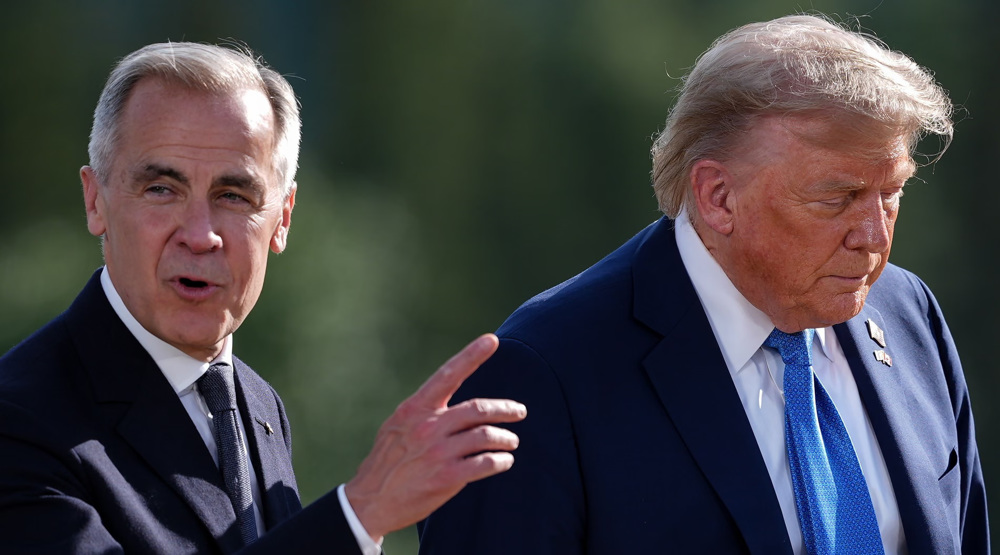US President Donald Trump has imposed steep tariffs on exports from 92 countries, including Canada, Switzerland, Brazil, and India, ahead of his self-imposed August 1 deadline that is expected to reignite global trade tensions.
“We have made a few deals today that are excellent deals for the country,” Trump told reporters on Thursday afternoon after signing executive orders to impose tariffs between 15 and 41 percent on goods from around the global market.
He ordered raising tariffs on Canadian imports to 35 percent for goods deemed non-compliant with the US-Mexico-Canada Agreement (USMCA), citing Canada’s failure to curb fentanyl smuggling across the border, saying Canada had"failed to cooperate" in curbing illicit narcotics flows into the US.
Canadian Prime Minister Mark Carney said in a statement that he was “disappointed” with Trump’s tariff hike, adding that “Canadians will be our own best customer.” He emphasized that Canada accounts for just 1 percent of US fentanyl imports, highlighting the minimal role Canada plays in the US fentanyl issue.
"While we will continue to negotiate with the United States on our trading relationship, the Canadian government is laser focused on what we can control: building Canada strong," he said in a post on X.
The decision pertaining to Canada contrasted sharply with Trump's decision to grant Mexico a 90-day reprieve from higher tariffs of 30% on many goods to allow time to negotiate a broader trade pact. However, Trump said the US would continue to levy a 50% tariff on Mexican steel, aluminum, and copper and a 25% tariff on Mexican autos and on non-USMCA-compliant goods subject to tariffs related to the US fentanyl crisis.

Indian goods seemed headed for a 25% tariff after talks bogged down over access to India's agriculture sector, drawing a higher-rate threat from Trump that included an unspecified penalty for India's purchases of Russian oil. New Delhi vowed to protect the country's farm sector, and the threat of higher rates from Trump triggered outrage from the opposition party and a slump in the rupee.
Trump also hit Brazil's exports on Wednesday with a 50% tariff as he escalated his fight with the country over its prosecution of former President Jair Bolsonaro, but softened the blow by excluding sectors such as aircraft, energy, and orange juice from heavier levies.
Meanwhile, China is facing an August 12 deadline to reach a durable tariff agreement with Trump's administration after Beijing and Washington reached preliminary deals in May and June to end tit-for-tat tariffs and a cut-off of rare earth minerals.
Swiss officials are yet to comprehend Trump’s 39% tariff against their products, saying it will be subject to a"negotiated solution."
South Africa's Trade Minister Parks Tau said he was seeking "real, practical interventions" to defend jobs and the economy against the 30% US tariff it faces.
The UK is not on the list of countries who will be hit by tariff changes. It was the first to secure a tariff agreement with the US in May, locking in a 10% rate.
European stocks hit a three-week low on Friday as investors focused on the impact of the new tariffs.
Furthermore, US Commerce Department data released Thursday showed prices for home furnishings and durable household equipment jumped 1.3% in June, the biggest gain since March 2022.
Recreational goods and vehicle prices shot up 0.9%, the most since February 2024. Prices for clothing and footwear rose 0.4%.
Trump set the Friday deadline after his earlier “Liberation Day” tariffs in April triggered a stock market slump and stoked fears of a recession. In response, he introduced a 90-day window for negotiations.
The US president’s new order is expected to take effect on August 7.

